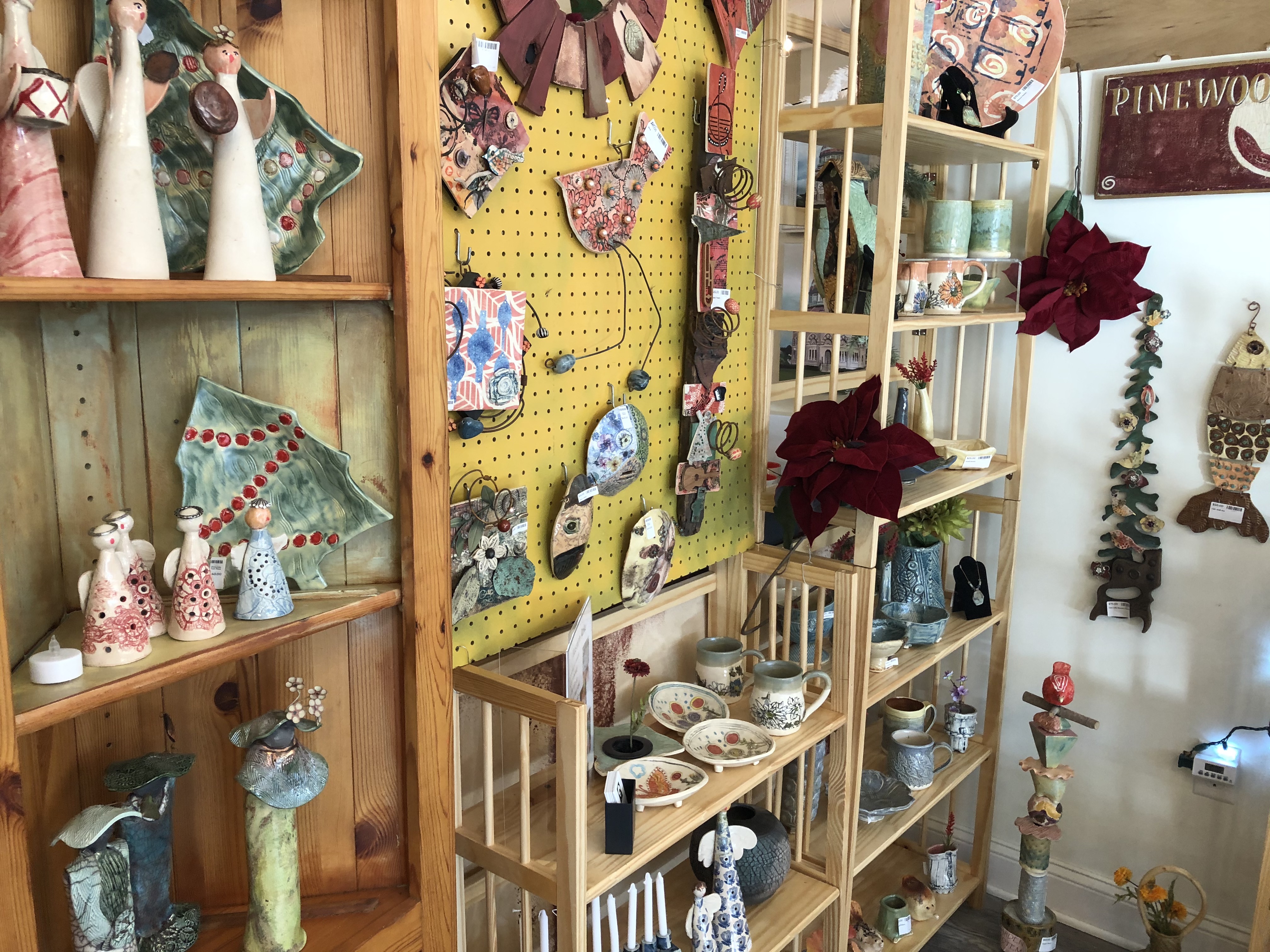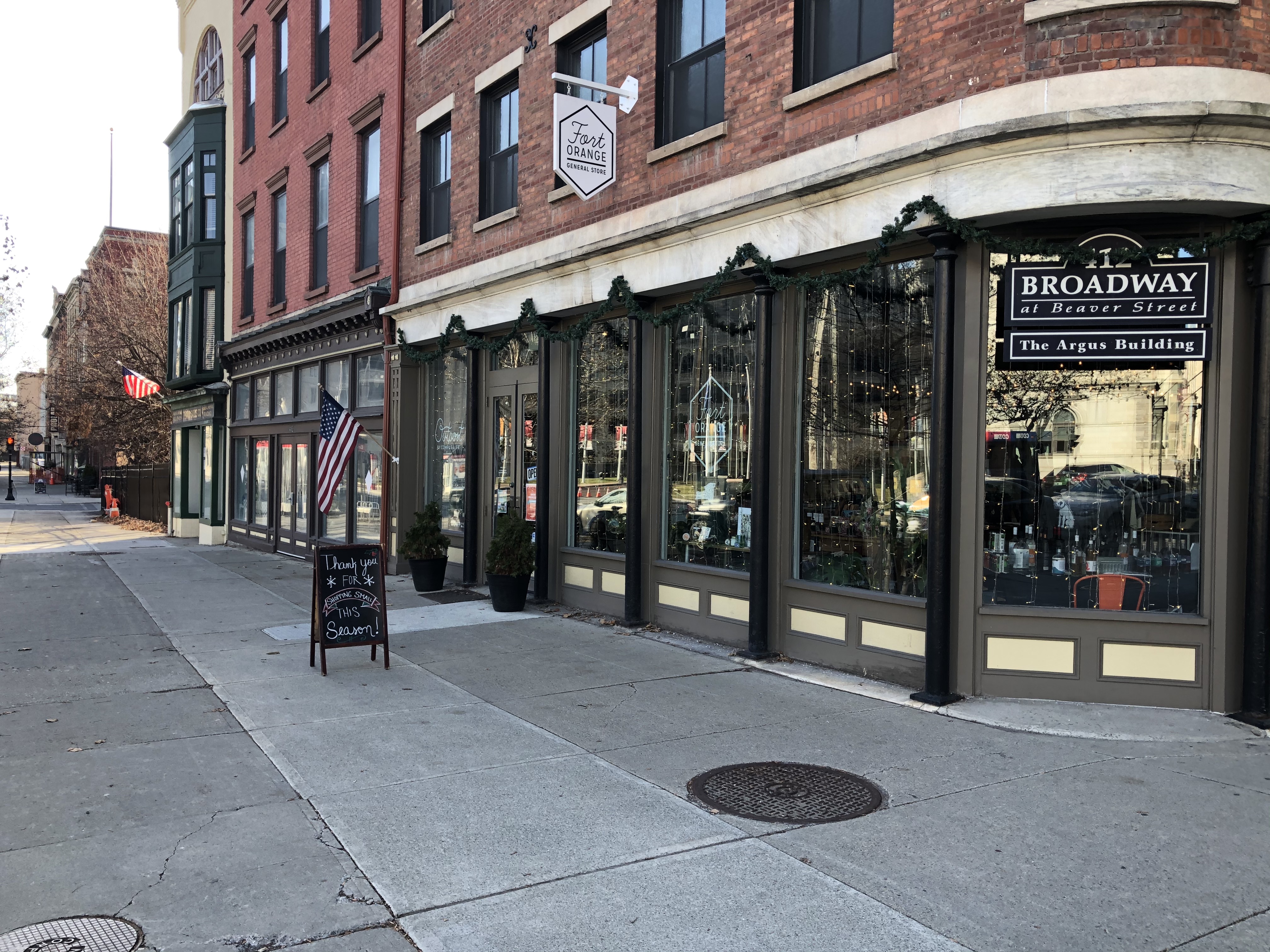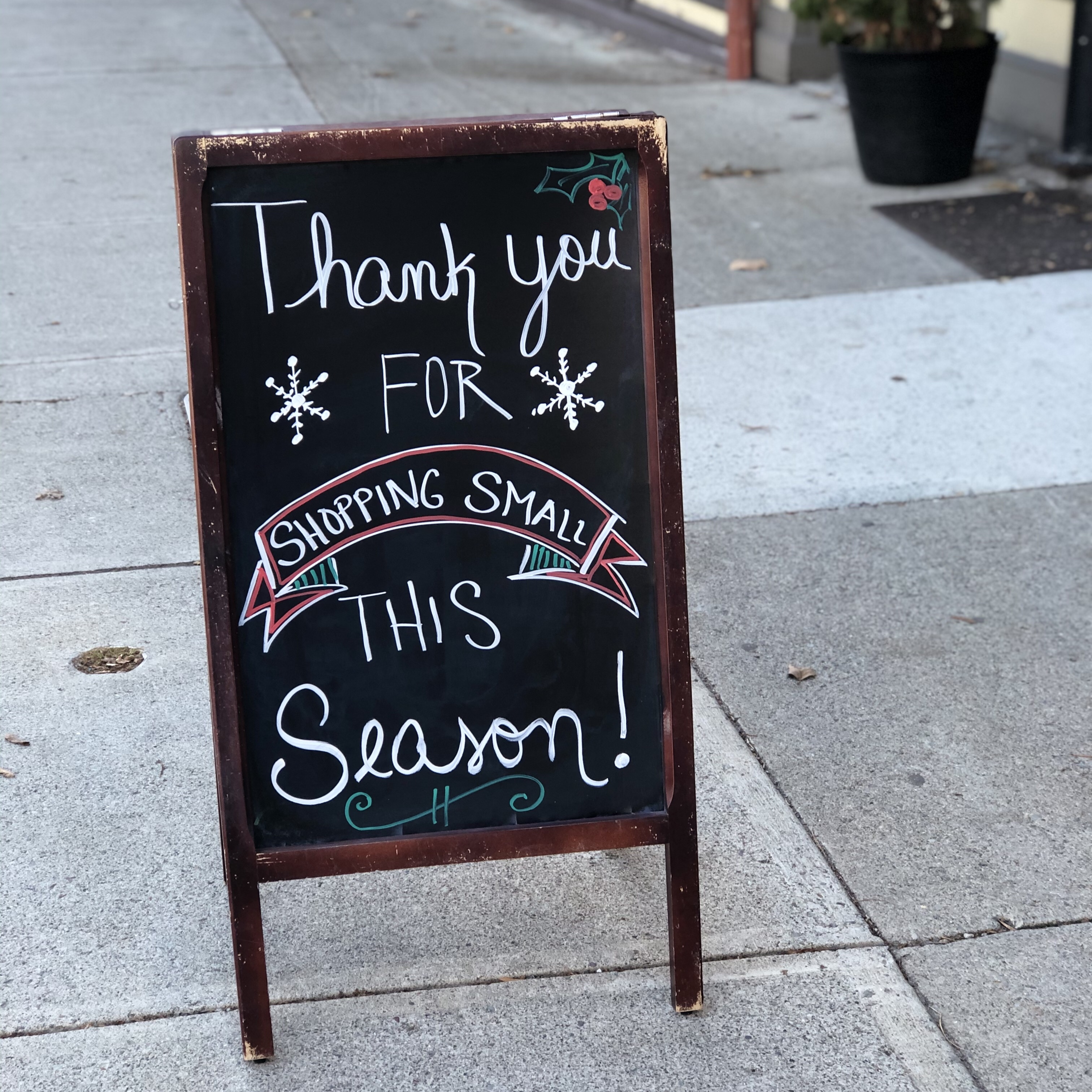There is nothing like walking around holiday markets filled with local vendors and an array of unique and special gifts available nowhere else: Handmade jewelry, beautiful artwork, craft beverages, and my favorite – anything that features Albany’s canine icon, Nipper.
However, as I visit these events, I realize that if I were to fill my shopping bags with all that I want to purchase, my wallet would be emptying at a rate much faster than I planned.

Decisions, decisions.
Let’s face it, shopping small can be quite pricey – especially when you consider the many discounts offered this time of year by the big box stores. It is possible to shop small on a budget. (More on that in a moment). But also realize that you’re making a statement by choosing to spend your cash at locally-owned businesses, where more than 50 percent of money you spend goes back to the community – your community. You can’t say that about a big box store.
Consider this scenario…
You grab a cup of coffee at a small business on Broadway in Albany and you tip the barista. That barista takes that tip and walks up to Lark Street to buy a present for his mom on her birthday. The art store where he shops is doing well with sales and takes its employees out to lunch to celebrate at a nearby restaurant on Madison Avenue. Sometime down the line, that restaurant owner decides she wants to sponsor the local little league team because a lot of families with children eat at her business. The little league team wins their game and all of the families walk down to the coffee shop on Broadway to get treats to celebrate.
And the circle of small business begins again.
Does it happen exactly like that every single time? No. But you get the idea.

According to the National Federation of Independent Business, over 90 percent of small business owners contribute each year to their communities though volunteering, in-kind contributions, and monetary donations. Shopping small helps create and support local jobs, which means you might be helping to pay the salary of a friend or neighbor.
Small business owners also tend to be more engaged in local development decisions. And the money from the sales taxes they generate goes towards local projects and services that may include police and fire departments, transportation and infrastructure projects, public schools, and recreation facilities.
These are all services that are critical to maintaining a healthy, strong community.
Sometimes less is more. At a time when so much merchandise is available with just a click of a button, it’s nice to close the computer, head out the door, and browse the shelves of a local boutique to find a unique, hand-crafted or locally-made item.
Back to the question of price. I love to shop small, but I also have to maintain a budget. How much am I willing to pay for an item – say a T-shirt with my puppy pal, Nipper – on it? Or that blown-glass ornament for the Christmas tree? Before going out and shopping small, I like to have an idea about how much I am willing to pay for particular items.
I also try to catch a bargain when I can. Through social media, like Instagram and Facebook, I follow a number of small businesses and see when they are having sales. If the sale price is still within my determined budget, then yes, I am going to make the extra effort of going to the store and putting that item in the cart.
Websites like Esty are also helpful. Some local businesses do sell products online and you can sort by price from lowest to highest, making it easier to shop within your price range.
Shopping small may be a little bit pricier, but an investment in our small businesses is an investment in our community. Local small businesses give their communities a distinct character with products, services, and job opportunities.
As you head out to shop, consider shopping small – even if you are on a budget – because you are sending the message with your dollars that community counts.



